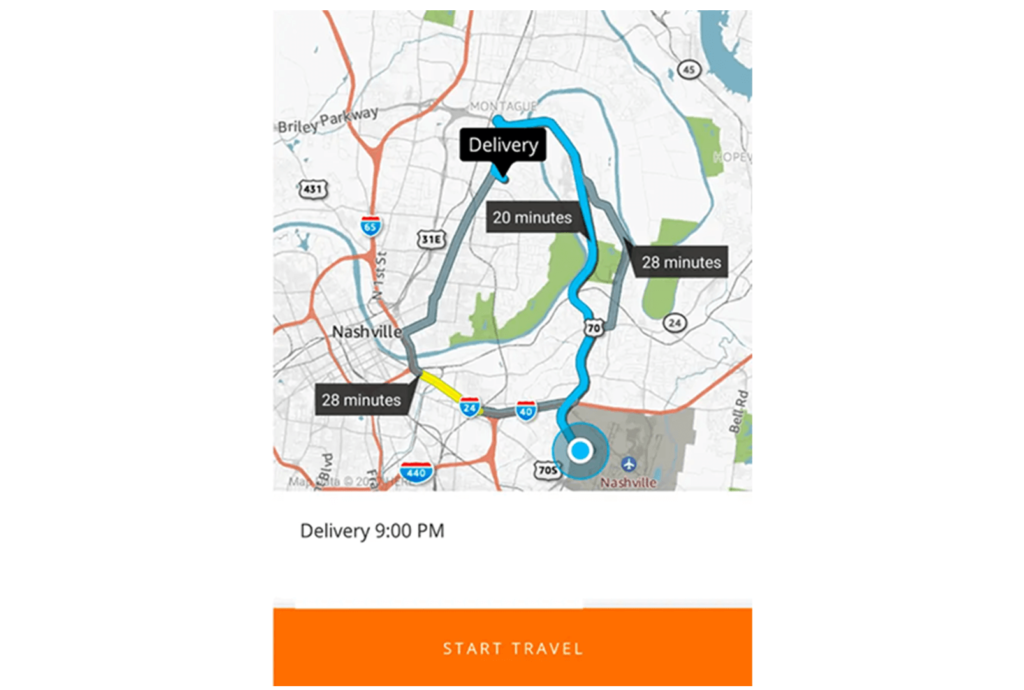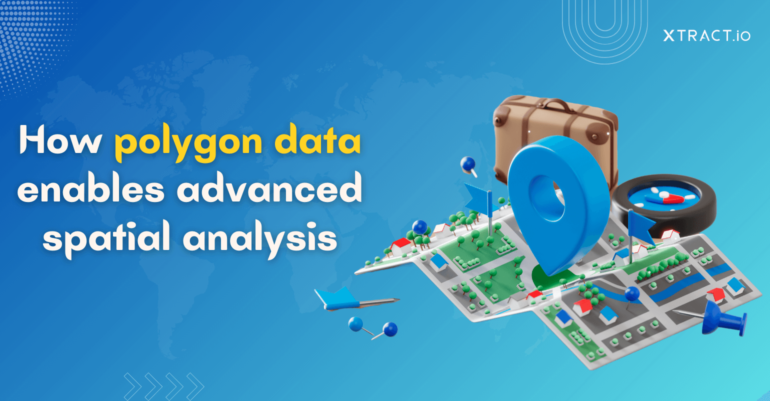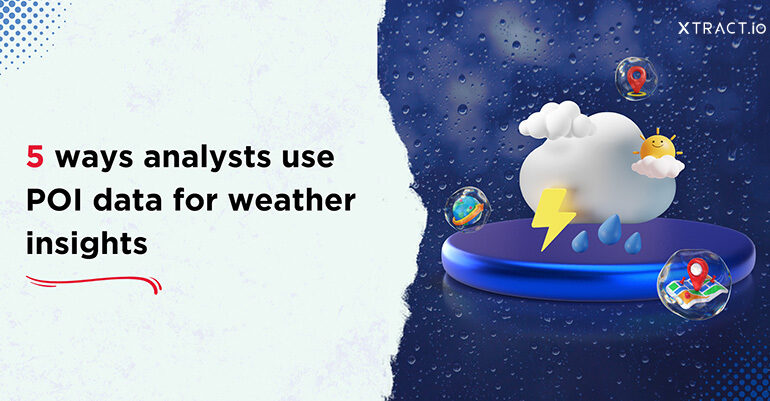The consumer packaged goods (CPG) industry has undergone significant transformation in recent years, and the need for strategic expansion into international markets has become increasingly vital for companies in this sector. To thrive and stand out in a highly competitive global marketplace, CPG companies are turning to location intelligence as a game-changing tool in their arsenal. Location intelligence offers a fresh perspective on market analysis, making it a valuable asset for companies seeking to enhance their international market share.
The benefits of location intelligence for CPG companies
As CPG companies seek to increase their market share on a global scale, location intelligence provides them with a host of benefits, giving them a competitive edge that traditional market analysis methods can’t match.
1. Enhanced market understanding
Location intelligence goes beyond traditional market research by delving deep into the dynamics of local markets. This means CPG companies can gain invaluable insights into consumer preferences, behaviors, and cultural nuances in each region. By understanding these local intricacies, companies can customize their product selection and promotional strategies accordingly.
For example, they can identify whether a specific region prefers eco-friendly packaging, low-price points, or certain flavor profiles, allowing for more precise targeting and effective product development.
According to research, 83% of marketers acknowledge that location data assists them in gaining a deeper understanding of their target audience and generating more effective campaigns. This data can be used for various purposes, including personalization and asset tracking. Therefore, 25% of the marketing budget is now spent on location-based marketing, which is 20x times more effective than any other technique.

2. Optimized supply chain management
Efficient supply chain management is a cornerstone of success in the CPG market. Location intelligence is crucial in enhancing the efficiency of supply chains. It allows companies to map out the most efficient distribution routes, reducing transportation costs and delivery times. Additionally, by pinpointing strategic warehouse locations, CPG companies can minimize stockouts, overstock situations, and wastage. These operational improvements contribute to better customer satisfaction and cost savings.
For example, Amazon, a global e-commerce giant, created a platform called Amazon Flex that enables independent contractors to deliver packages using real-time location tracking and analytics to allocate deliveries efficiently, optimizing routes based on current conditions. This ensures that packages are delivered swiftly and accurately, improving the overall quality of the shopping experience.

3. Gain a competitive edge
In the international market, competition is intense. CPG companies need a strategy that enables them to stand out. Location intelligence equips them to identify gaps and unmet needs in different markets. By recognizing untapped opportunities, CPG companies can introduce innovative products, develop unique marketing strategies, and capture a larger market share. In this way, location intelligence helps companies not only compete but also lead in their respective industries.
Location intelligence equips companies with real-time data insights that enable quick adjustments in advertising strategies. For instance, by monitoring local trends or sudden shifts in consumer behavior, CPG companies can swiftly adapt their marketing campaigns to capitalize on emerging opportunities or respond effectively to market changes. This flexibility allows companies to stay ahead of the curve, continuously refining and tailoring their marketing strategies to remain relevant and competitive in ever-evolving markets.
Implementing location intelligence in CPG companies
For the consumer packaged goods (CPG) market, successfully integrating location intelligence into their operations involves a strategic and systematic approach that leverages consumer insights to enhance decision-making, marketing strategies, and overall business performance.
1. Selecting the right tools and platforms
The initial step in implementing location intelligence involves choosing appropriate tools and platforms. CPG companies must assess and invest in tools that suit their specific needs. These tools should offer features such as geospatial analytics, demographic insights, market segmentation, and real-time data analysis. It’s crucial to select platforms that are user-friendly and compatible with existing systems, ensuring a smooth integration process. A few popular ones are – the ArcGIS platform, Mapbox, Tableau, Qlik GeoAnalytics, and many more.
2. Data collection and analysis
Accurate and comprehensive data collection forms the foundation of location intelligence. CPG companies need to gather diverse datasets related to consumer behavior, demographics, purchasing patterns, and geographic information. This data can originate from diverse origins, including customer interactions, social media, market research, or through location data providers such as Xtract.io. Once collected, robust data analysis is essential to derive actionable insights. Advanced analytics tools can help process large datasets to recognize patterns, inclinations, and potential market openings.
3. Integration into existing strategies
Collaboration between different departments is essential to ensure the seamless adoption of location intelligence insights. Marketing teams can use location-specific data to refine targeting strategies, while supply chain management can optimize logistics based on geographic insights. Implementing location intelligence into decision-making processes and overall strategic planning ensures that location-specific data influences every aspect of the business.
4. Continuous improvement and adaptation
Location intelligence is not static. It requires continuous observation, evaluation, and adjustment. CPG companies must continuously evaluate the effectiveness of their strategies based on location-based insights. Regularly updating and refining approaches based on new data ensures that the company stays responsive to evolving market conditions and changing consumer behaviors. Xtract.io, a leading location data provider, refreshes its location database at regular intervals and delivers 95% accurate data.
Conclusion
By harnessing location-specific insights and smart advertising strategies, CPG companies can carve a path to success in market expansion. This powerful combination empowers these companies to understand and adapt to diverse consumer behaviors and preferences across varied regions, enabling targeted, personalized marketing campaigns. Ultimately, the utilization of location intelligence not only leads to sustained market growth and positions CPG companies to redefine and excel in the increasingly competitive and ever-evolving global CPG market. Interested in gaining consumer insights through quality location data? Connect with LocationsXYZ, a precise and fresh global location database, to know more.







